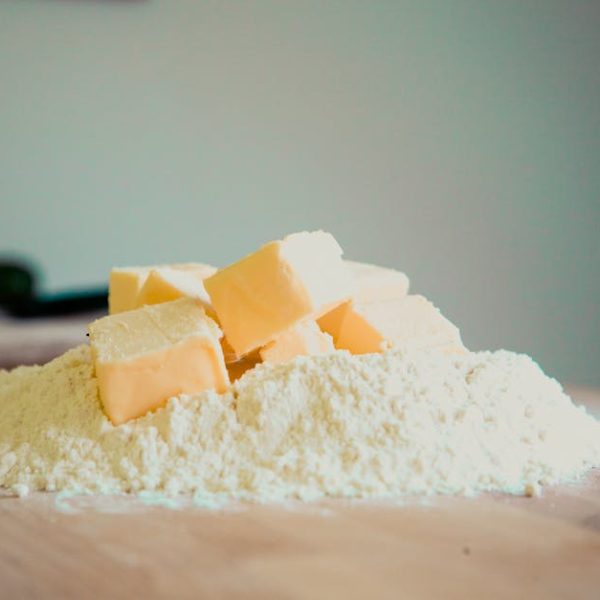The beautiful simplicity of a hard-boiled egg makes it a popular choice in kitchens around the world. When boiled to perfection, these humble eggs transform into a rich, protein-packed treat that can be used in numerous dishes or consumed plain on its own. Yet, like all food items, hard-boiled eggs have a certain period during which they remain fresh and safe to consume, after which they become inedible. This period is about one week, assuming the eggs are properly stored in the refrigerator.
Freshness of Hard Boiled Eggs: An Overview
Contrary to popular belief, cooked food doesn’t automatically have a longer shelf life compared to its raw counterpart. The same applies to hard-boiled eggs; they are perishable and have a relatively short freshness period. This period can further be shortened by improper handling or storage, which encourages bacterial growth. As a rule of thumb, hard-boiled eggs should always be cooled in cold water after boiling and stored in a covered container in the refrigerator at or below 40°F.
Here are some key indicators of egg freshness and spoilage:
- Appearance: Fresh hard-boiled eggs have a firm yolk and white. On the other way, spoiling eggs typically have a discolored yolk and a slimy or overly soft white.
- Smell: An unmistakable sulfur-like odor indicates that the egg has gone bad.
- Float Test: Fresh eggs will sink in water, while older or spoiled eggs are likely to float.
Storing Hard Boiled Eggs Properly
The major factor determining how long boiled eggs stay fresh is the manner of their storage. Eggs are best stored inside the refrigerator, ideally in a covered container, where they are protected from the introduction of outside bacteria. Also, storing in the refrigerator helps maintaining an optimal temperature for their freshness, reducing the likelihood of spoilage.
Pro Tip: Always label the egg carton or the container with the date of cooking. It helps in keeping track of the freshness period.
On the contrary, storing hard-boiled eggs at room temperature significantly reduces their shelf life. They can become unsafe to eat in as quick as two hours due to the rapid multiplication of bacteria at higher temperatures.
Effect of Peeling on Freshness of Hard Boiled Eggs
Interestingly, how long a hard-boiled egg remains fresh depends whether it’s peeled or not. Unpeeled hard-boiled eggs have a longer freshness span because the shell acts as a protective layer against bacteria and moisture loss. Hence, the egg stays safe to eat for up to a week when stored correctly.
On the other hand, eggs that have been peeled are exposed, risking them to bacterial contamination and rapid drying out. Therefore, peeled hard-boiled eggs should be consumed as soon as possible, or stored in a container of water in the refrigerator for a maximum of two days.
✨Pro Tip: Peel the eggs only when you’re ready to eat or use them. This ensures maximum freshness and reduces the risk of bacterial ingress.
Detecting Spoiled Hard Boiled Eggs
Recognising the signs of a spoiled hard-boiled egg can prevent unpleasant experiences, not limited to gastric issues and food poisoning. A rotten egg will emit a distinctively unpleasant smell. If you’re unsure, crack the suspected egg in a separate bowl before using it – if spoiling, the egg yolk may be discolored or have a slimy texture.
Here are some ways to determine if a hard-boiled egg has spoiled:
- Smell: A strong, unpleasant odor is a clear sign of spoilage. Fresh eggs have a very mild smell.
- Colour: Discard eggs with discolored or greenish egg yolks.
- Texture: Fresh eggs are slightly moist, but not sticky or slimy.
Best Practice: When in doubt, throw it out! It’s better to be safe than sorry. If you suspect an egg has spoiled, it’s not worth the risk to consume.
Risks of Eating Spoiled Hard Boiled Eggs
Eating spoiled hard-boiled eggs can lead to a number of health risks, the most common being food poisoning. Symptoms such as vomiting, diarrhea, and stomach discomfort can occur once foodborne pathogens, like Salmonella, are ingested. Those with weak immune systems, young children, the elderly, and pregnant women are particularly at risk.
Here’s a comparison highlighting the risks of eating fresh eggs versus spoiled eggs:
| Fresh Eggs | Spoiled Eggs | |
|---|---|---|
| Health Risks | Minimal if cooked and stored correctly | Can cause food poisoning or Salmonella infection |
| Nutritional Value | High – packed with protein and essential nutrients | Decreased due to spoilage and bacterial growth |
⚠️ Pro Tip: Pay attention to the perishable nature of eggs. A disciplined approach to storing and consuming eggs within their freshness period can save you from potential health hazards.
Overall, consuming hard-boiled eggs can be a healthy and enjoyable part of your diet, as long as you pay attention to their freshness and handling. Organized storage, along with diligent practices in detecting and discarding spoiled eggs, can ensure a pleasant and safe experience with hard-boiled eggs. Remember, when in doubt, it’s always safer to throw it out. Enjoy your eggs!
Key Takeaway:
- Hard-boiled eggs typically remain fresh for about a week when properly stored in the refrigerator at or below 40°F.
- Fresh hard-boiled eggs have a firm yolk and white, without any unusual smell.
- Storing eggs in a covered container in the refrigerator helps maintain their freshness and protects against bacteria.
- Unpeeled hard-boiled eggs stay fresh longer, as the shell serves as a protective layer.
- Spotting a spoiled hard-boiled egg involves observing its smell, color, and texture.
Knowing the best practices for storing, checking, and handling your hard-boiled eggs provides an easy way to ensure you’re always consuming a safe, fresh product. Remember, prevention is better than cure. So, always check your eggs before consumption and don’t risk eating an egg you suspect is off.
FAQs
Q: How can I prolong the freshness of hard-boiled eggs?
A: To keep hard-boiled eggs fresh for longer, store them unpeeled in a covered container in the refrigerator. Label the container with the date they were cooked to keep track of their freshness.
Q: What is the risk of storing hard-boiled eggs at room temperature?
A: Hard-boiled eggs kept at room temperature can become unsafe to eat quite quickly – within about two hours. This is due to the rapid multiplication of bacteria at higher temperatures.
Q: How long can peeled boiled eggs be stored?
A: Peeled hard-boiled eggs should be consumed immediately or stored in the refrigerator in a water-filled container for a maximum of two days.
Q: What are the symptoms of food poisoning from a spoiled egg?
A: Food poisoning from a spoiled egg can result in symptoms like vomiting, diarrhea, and stomach discomfort. If you suspect that you’ve eaten a spoiled egg and are exhibiting these symptoms, you should seek medical attention immediately.
Q: What is the best way to check if a hard-boiled egg is spoiled?
A: Some major signs of a spoiled egg are a strong, unpleasant smell, discolored or greenish yolk, and a slimy texture. If in doubt, it’s always safer to dispose of the suspect egg.
We hope you have found this information helpful. Feel free to share this article and check out more informative posts on our website.






